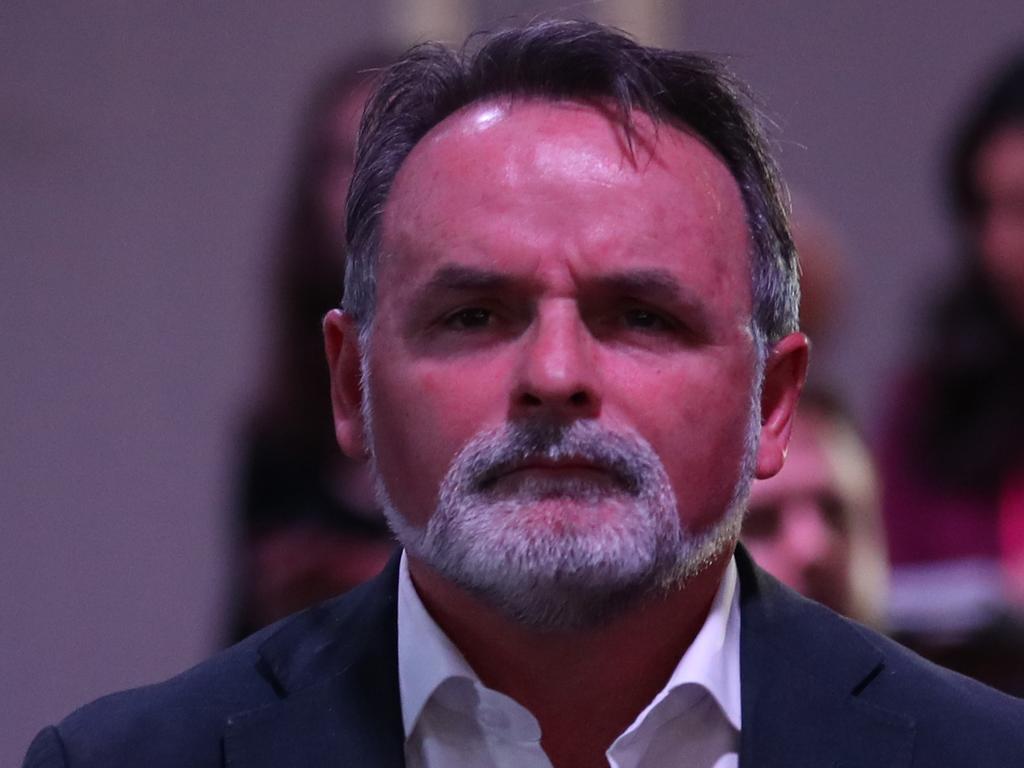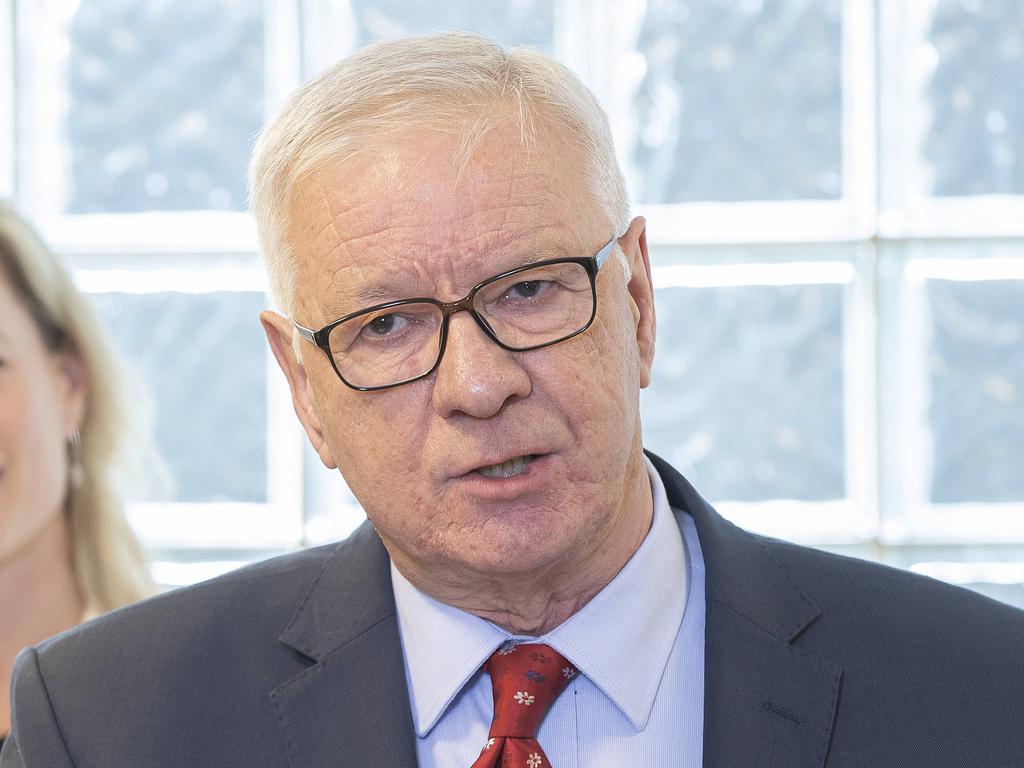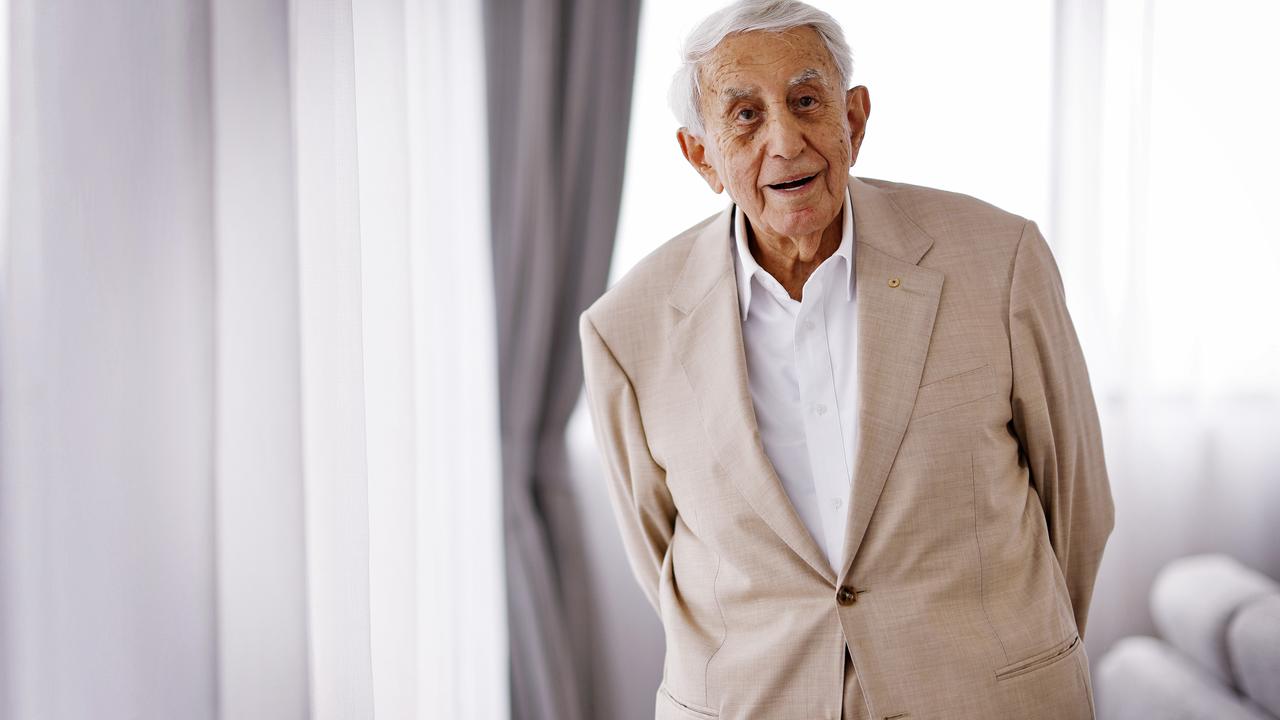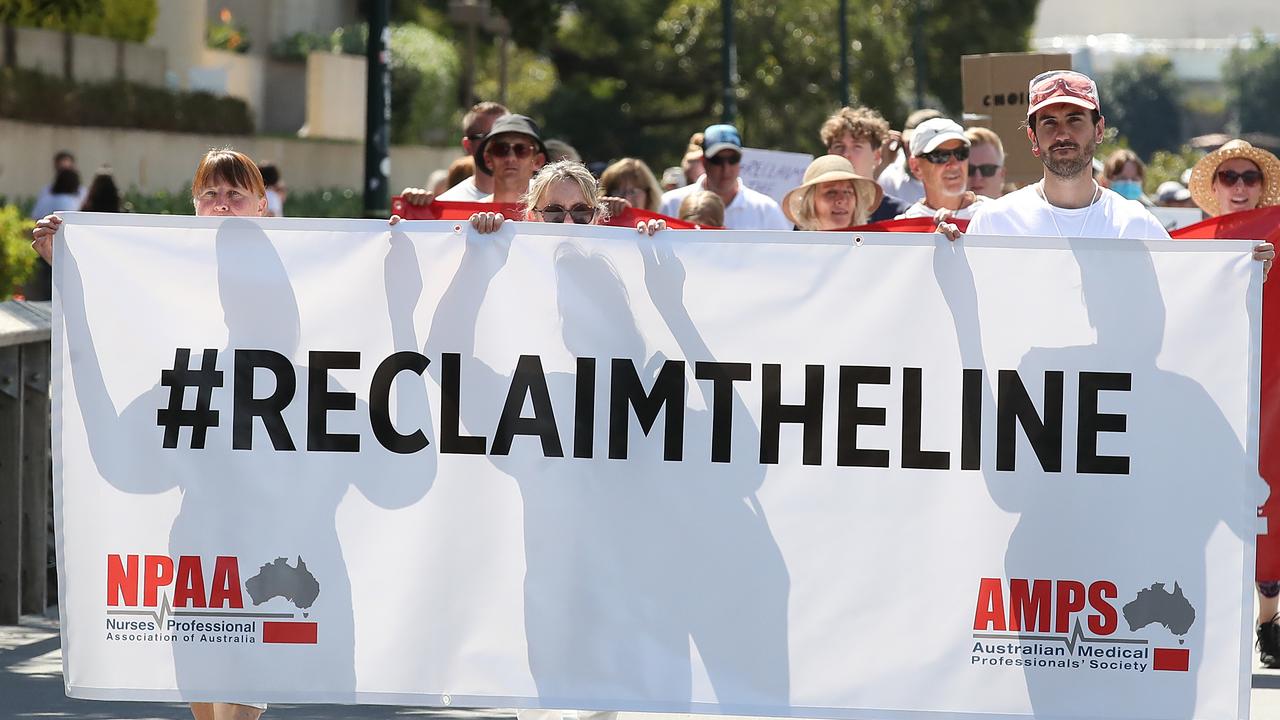Bitter Tasmanian Labor row risks party split and Anthony Albanese intervention
Anthony Albanese is set to be dragged into a divisive preselection decision that threatens to split the Tasmanian ALP and derail its push to oust the nation’s last Liberal government.
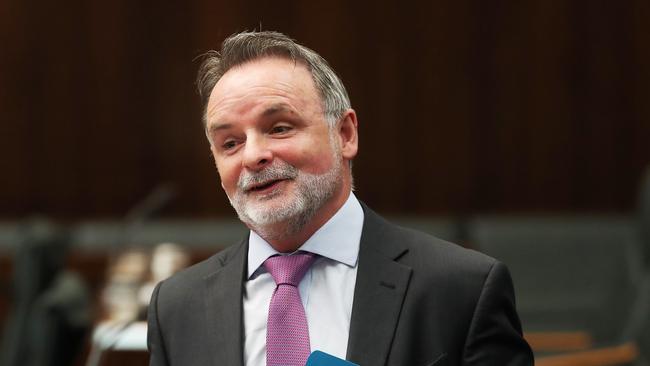
Anthony Albanese is set to be dragged into a divisive preselection decision that threatens to split the Tasmanian ALP and derail its push to oust the nation’s last Liberal government.
Former state Labor leader David O’Byrne – banished from caucus in 2021 in the wake of sexual harassment allegations – is seeking party preselection for the state election.
His bid is supported by some left-wing unions and grassroots members but opposed by the Right and some within the Left, including much of state caucus.
Opposition Leader Rebecca White – instrumental in ejecting Mr O’Byrne from caucus – remains firmly opposed to his return, with suggestions she would quit if he secured preselection.
With the Tasmanian ALP branch in administration, preselection decisions will fall to the party’s national executive, most likely late this year, ahead of an election due in May 2025 but which may come sooner.
Labor’s national conference on August 17-19 will consider a factional peace deal whereby the Left and Right would maintain their current equal numbers on the executive, with the Prime Minister deciding deadlocks.
Without such a deal, a ballot could deliver the Left a narrow majority on the executive.
Multiple sources confirmed that if the national executive was evenly divided on Mr O’Byrne’s preselection, Mr Albanese might need to “make the call”.
Some sources suggested that even if a Left-dominated executive backed Mr O’Byrne, Ms White and her supporters would expect Mr Albanese to intervene and block his preselection.
Unless Ms White and Mr O’Byrne can find a rapprochement in coming months, a decision to preselect Mr O’Byrne would likely spark a resumption of the internal conflict that destroyed the party’s 2021 election campaign.
Any decision to block an O’Byrne preselection also threatens significant internal angst and potential retaliation from his supporters in the union movement and membership.
Mr O’Byrne was cast into political limbo in July 2021 after he resigned as leader in the wake of the sexual harassment claims.
He apologised for kissing and sending “sexually suggestive” text messages to a young female probationary staff member when he was a union leader in 2007-08.
A Labor-commissioned report found his conduct “inappropriate” and “wrong” but also that it did not breach party sexual harassment policy.
Sources say it would be a “huge call” and “extraordinary” for national executive or Mr Albanese, in the #MeToo era, to back Mr O’Byrne and risk losing Ms White and a state election.
Mr O’Byrne’s supporters, who say he has “done his time” and is among Labor’s best talents, maintain that a way must be found to accommodate both. They will say the party needs Mr O’Byrne on its ticket in the southern electorate of Franklin to help win government. (Tasmania’s lower house has multi-member electorates and Hare Clark proportional representation).
An Albanese government spokesman said state preselections were a matter for the party organisation.
Ms White this week said her view “hasn’t changed” since she suggested two years ago that Mr O’Byrne should leave parliament.
Mr O’Byrne declined to comment, beyond standing by his view that he had much to “contribute”, and that a “mature conversation” could resolve issues between himself and Ms White.


